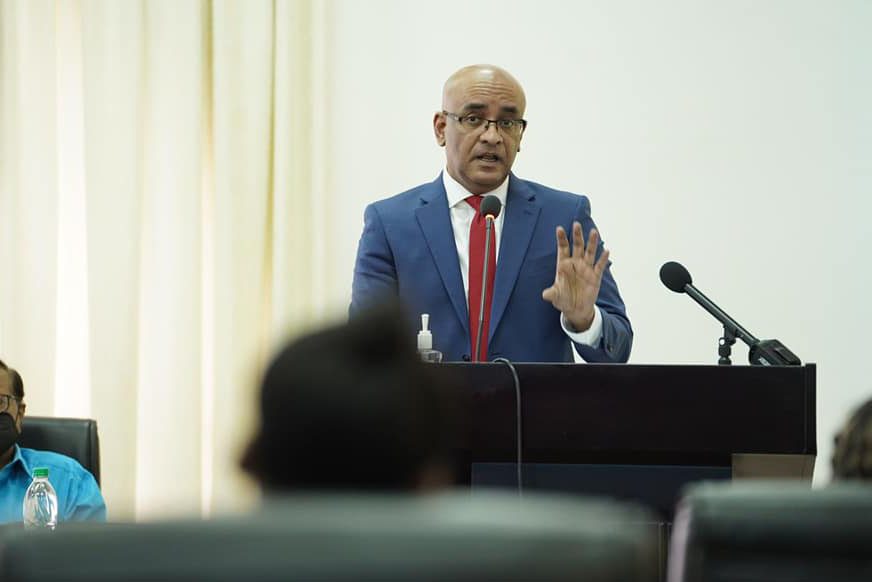Guyana remains steadfast in its vigilance as Venezuela persists in its aggressive stance, asserting claims to two-thirds of Guyanese territory, particularly the Essequibo region, following a recent referendum. Bharrat Jagdeo, Vice President, reiterated this commitment during a press conference on April 4.
“We’re not going to let our guards down. So, I hope the country recognizes this,” Jagdeo asserted.
Addressing the Venezuelan government’s actions, Jagdeo characterized them as a form of annexation by decree, violating both the Argyle Declaration and the ongoing judicial process at the International Court of Justice (ICJ).
Venezuela’s military posture does not conform with its diplomatic stance – Todd | OilNOW
He said, “In fact, it runs counter to the provisional measures given by the World Court, that prohibits any change of the status quo, in relation to the 1899 Award. Venezuela is seeking to unilaterally change this.”
The Venezuelan National Assembly’s adoption of a law declaring Guyana’s Essequibo region as part of Venezuela has been sternly rebuked by the Guyana government. Guyana has appealed to the international community to reject Venezuela’s “illegal expansionism” and to support the resolution of this territorial row through the ICJ.
Venezuela’s National Assembly, on March 21, 2024, said it passed the Organic Law for the Defense of Guayana Esequiba, aiming to establish mechanisms for “the protection of the territory” and to reinforce Venezuela’s claim over the region.
This law, comprising 39 articles, transitional provisions, and final provisions, outlines steps for the establishment of a State of Guayana Esequiba, including the appointment of a governor and the assumption of legislative functions by the National Assembly until a more permanent governance structure is established. Additionally, it mandates the inclusion of Guayana Esequiba in all political maps of Venezuela and establishes a High Commission for the state, underscoring Venezuela’s intention to integrate the region fully. Venezuelan President, Nicolas Maduro signed the law on April 3.
The heart of this legal battle is the Arbitral Award of 1899, a document that settled the boundary between the two South American nations more than a hundred years ago. In 1962, some 63 years after accepting the boundary, Venezuela claimed the Award was null and void. After years of discussions between the two countries under the United Nations Good Offices Process failed to deliver a resolution, UN Secretary General Antonio Guterres referred the matter to the ICJ in 2018. Despite Venezuela’s preference for bilateral negotiations and its non-recognition of the Court’s jurisdiction—a stance rebuffed by a 2020 ICJ ruling confirming its jurisdiction—the process has moved forward.




